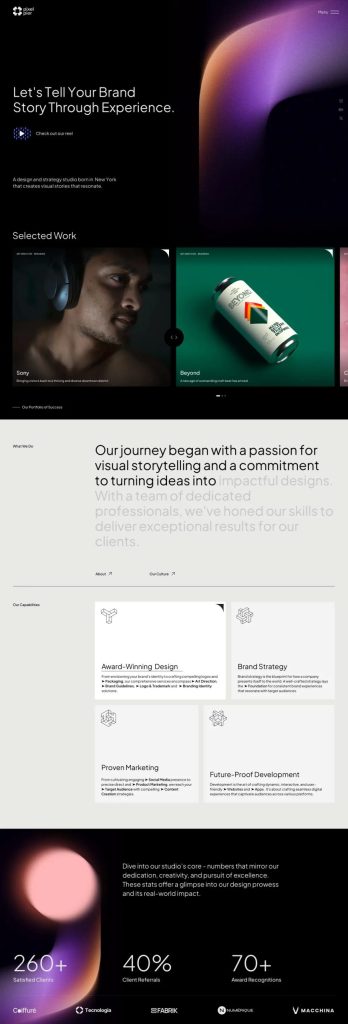The year 2024 has heralded unprecedented advancements in artificial intelligence, notably through new large models, innovative tools, and emerging technologies. This article explores the latest developments, emphasizing AI models like Google Gemini 1.5 Pro, cutting-edge tools, and specialized applications set to reshape industries such as healthcare, cybersecurity, and business automation.
One of the most significant announcements in 2024 was the release of Google Gemini 1.5 Pro. This large language model (LLM) builds on its predecessor’s foundation, offering enhanced multimodal capabilities, making it capable of understanding and generating content across various forms, including text, images, and audio. Google has emphasized that Gemini 1.5 Pro features extended context understanding, allowing users to input significantly longer text prompts—up to 8,192 tokens—enabling richer interactions and more nuanced content generation. This improvement will aid industries such as education, where more extensive context can enhance learning materials, or healthcare, where the synthesis of complex data and narrative can inform patient care (Source: Google AI Blog).
In tandem with model enhancements, the availability of advanced tools and APIs has been a focal point this year. Organizations like Zest AI have unveiled comprehensive solutions that integrate advanced AI for data analysis and decision-making. Zest AI’s latest tool leverages machine learning to streamline credit underwriting processes, empowering financial institutions to harness predictive analytics in a way that is more equitable and efficient. This not only hastens the approval process but also reduces biases in lending, an ongoing challenge for the industry (Source: Zest AI Press Release).
Another noteworthy development in 2024 is the advent of Fetch.ai’s decentralized AI solutions, which allow businesses to automate daily tasks through autonomous agents. These agents facilitate complex negotiations and transactions without human intervention, making them particularly attractive to industries requiring high-level automation. The integration of Fetch.ai’s architecture with existing databases optimizes supply chain management and improves operational efficiency. This innovation promises significant implications for the logistics sector, where timely responses to changing demands can enhance the overall productivity of enterprises (Source: Fetch.ai Blog).
As AI applications grow, so does the focus on reliability and bias mitigation. New specialized LLMs designed to address these issues are entering the market. Enhanced debiasing techniques are applied to ensure fairer outcomes across various sectors. For example, systems developed by organizations engaged in healthcare have begun employing more reliable LLMs that generate recommendations free from bias, resulting in improved patient outcomes and equitable treatment protocols (Source: Journal of AI Ethics).
In cybersecurity, the landscape of protection is evolving rapidly. Companies are employing AI-powered solutions that provide adaptive threat detection and response capabilities. For instance, several organizations have introduced machine learning frameworks capable of identifying and neutralizing cyber threats in real-time while minimizing false positives. This is crucial in an era where cyber-attacks are becoming increasingly sophisticated. Businesses like FireEye have reported advances in their AI-driven tools for incident response, emphasizing the importance of not just detection but also proactive response capabilities (Source: FireEye Security Report 2024).
Moreover, creative industries are experiencing a renaissance thanks to AI innovation. Companies are developing bespoke tools that assist in creative processes. For example, tools like Adobe’s latest suite utilize generative AI to assist artists and designers with suggestions, automating mundane tasks and providing unique style recommendations. This empowers creatives to focus on ideation, while AI handles repetitive elements, resulting in a more efficient creative process (Source: Adobe Innovations 2024).
Moreover, educational institutions have turned towards AI for personalized learning experiences. Programs that integrate AI tools now offer adaptive learning environments tailored to the unique pace and style of each student. These innovations cater to diverse learning needs, making education more inclusive. For instance, platforms like Khan Academy have embraced AI to provide customized learning paths, dramatically enhancing engagement levels among students (Source: Khan Academy Education 2024 Report).
The intersection of AI and healthcare represents one of the most promising sectors for technological advancement. AI models are capable of analyzing vast datasets, including medical imagery and patient histories, to assist healthcare professionals in making faster and more accurate diagnoses. Companies like Tempus have been catalysts in this revolution, with their AI tools analyzing clinical data to guide treatment pathways and optimize patient outcomes (Source: Tempus Health 2024 Insights).
In business automation, AI tools continue to evolve, offering functionalities that drastically cut down operational redundancies. Software solutions from companies like UiPath are embedding AI capabilities into existing frameworks, significantly reducing the time needed for routine business processes. By automating tasks such as invoice processing and customer service inquiries, organizations can redirect human resources toward strategic initiatives, fundamentally altering workforce productivity dynamics (Source: UiPath Automation Report 2024).
Looking ahead, the trajectory of AI development seems focused on creating more inclusive, efficient, and effective systems. As the new models and tools mature, businesses and industries will adapt, leveraging these innovations to unlock value across applications. The ripple effects of these advancements will only deepen, reshaping how industries interact with technology and each other.
In summary, 2024 has seen remarkable strides in artificial intelligence, with sophisticated models like Google Gemini 1.5 Pro leading the charge alongside innovative tools from companies like Zest AI and Fetch.ai. Specialized LLMs are addressing crucial issues of bias and reliability, while innovative products enhance functionalities across industries such as healthcare, cybersecurity, education, and creative endeavors. As the landscape continues to evolve, the potential of AI is realized, creating opportunities to reimagine traditional processes and outcomes across sectors.
In conclusion, staying informed on these developments is essential for businesses, educators, and policymakers alike as they navigate the complexities and opportunities presented by AI in today’s world.




























